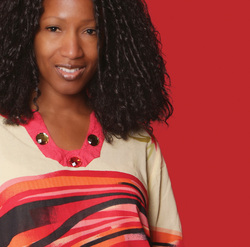 The following are 4 reasons why this Huffington Post article on female circumcision, misnomered as Female Genital Mutilation by opponents, making its rounds on Sierra Leone listservs and social media over the last week is flawed, misleading and terribly insensitive to the Ebola Crisis that is facing the country at the moment: 1. General Ban on Public Gatherings: To my knowledge there has been a general ban on all activities that can exacerbate the spread of the Ebola virus in the country: i.e. public gatherings, dances, ceremonial practices and especially traditional circumcisions – female and male – that involve exposure to bodily fluids such as blood, which is a major mode of transmission of this deadly virus. Traditional female circumcision practices are no exception to this important rule and are not targeted in isolation of other activities and practices that could endanger people’s lives during this time of crisis. 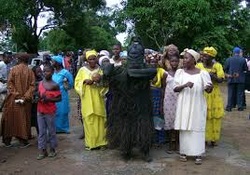 2. No MOU Exists in SL: To my knowledge, the assertion that an MOU was “signed” by Soweis to forbid the circumcision of girls under 18 is a myth perpetrated by the media and activist organizations. Further, the notion that “600” girls were “spared” female circumcision as a result of this intervention is another media/activist claim that is completely unsubstantiated. 3. Female Circumcision in SL is not about Virginity: That female circumcision is performed on girls in Sierra Leone to maintain virginity and fidelity in marriage is completely false and contrary to the actual meanings of this practice and its parallel with male circumcision. Ideals about virginity, chastity and fidelity may be associated with more invasive forms of female circumcision, such as infibulation (WHO TYPE III) in predominantly Muslim populations on the horn of Africa, but they are not the main focus of less invasive excision (WHO TYPE II) procedures performed in Sierra Leone. Both female and male circumcision are connected with ideas about the creation of sex and gender and both are required by ethnic groups that uphold these practices as important transitions to adulthood and marriage. 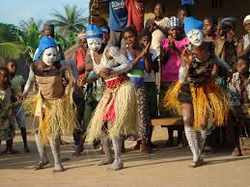 4. Female Circumcision is Celebrated by Girls and Women: As the author rightly quoted the Sowei, most girls and women in Sierra Leone celebrate female circumcision in initiation ceremonies and are proud of their traditions and the aesthetics of these procedures. As with male circumcision, there are a minority of those who are against the practice and consider circumcision to be “mutilation”. While western activists ignore the voices and claims of violence made by male opponents to male circumcision they allow only those minority of women who are opposed to the practice of female circumcision to speak for the vast majority of us who are quite happy with our genitalia, thank you, and support our traditions. 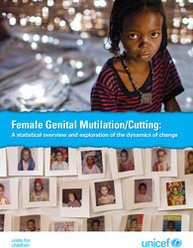 Anti-FGM Activists and Financial Gain in Propaganda: The purpose of this kind of propaganda (i.e. sensationalist assertions that have no basis in fact) that is being promulgated by activists and the western media is to solicit more and more money for the activists themselves to supposedly implement so-called anti-FGM campaigns. These expensive and denigrating media campaigns have become a burgeoning multi-million dollar industry that, like all lucrative enterprises, everybody wants in on. On a topic like FGM, where there is no fact-checking or critical thinking involved, the more outrageous and horrific the claims, the greater the chances for attention. When these terrific yet unsubstantiated claims are matched with a false message that change is occurring (but make sure you never show any proof of this) and that a specific method or program is making progress in defeating the problem, the more likely it is for activists to milk generous funds from media audiences who are not exposed to any kind of balanced debate and critical discussions of the alleged problem. Unicef knows better than this. In its own 2013 special report on FGC/M (albeit efforts to dress up the dismal facts), it was clear that there was very little change in practices of female circumcision in sub-Sahara Africa. The organization that Unicef generously sponsored and promoted, TOSTAN, failed dismally in Senegal where despite the amount of money and media attention around its “abandonment” efforts, virtually no change was recorded in this region with regard to the prevalence and support of female circumcision. In fact, the only two countries that reported the most significant changes, Central African Republic (CAR) and Kenya, had no previous intervention from anti-FGM activists in the first case and in the second, change cannot be linked to modern anti-FGM campaigning that began in the 1980s. The point here is clear: Unicef is enabling the activists who shape the misguided anti-FGM policies of this otherwise notable institution to capitalize on the generous Ebola money coming into Sierra Leone. Hello…? Ebola is not bringing an end to female circumcision in Sierra Leone but is likely providing financial opportunity for anti-FGM activists. As the Sowei mentioned in the article noted, things will go back to normal when the crisis is over. They did after the protracted war in Sierra Leone, much to the shock and dismay of anti-FGM activists. Ebola is virtually under control in neighboring Guinea and Liberia – has female circumcision ended in these two countries? 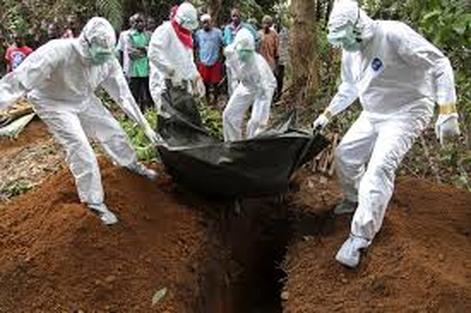 With the country mourning and suffering the loss of so many prominent doctors, nurses and other healthcare personnel to Ebola, I would think that Unicef and so-called anti-FGM activists would allow us this time to heal as a nation and work together to end the real scourge that is costing us the lives of our loved ones, our fellow citizens and the best of our health care officials. So, Unicef (and the journalists who print anti-FGM propaganda without fact-checking), please leave Ebola funds for the sick and dying and those who are risking their lives to care for them and send your anti-FGM activists packing to some other supposed misogynist third world country in need of western feminist salvation. Remain as part of the solution instead of allowing this commendable global institution to be used to further divisiveness in our communities at this hour of our country’s public health catastrophe. For readers who are looking for more balanced information on evidence based research concerning Female Circumcision, please refer to the Public Policy Advisory on Female Genital Surgeries in Africa, The Hastings Center Report, Nov/Dec 2012 or contact me below: Fuambai Sia Ahmadu, PhD Founder, African Women Are Free to Choose (AWA-FC) www.fuambaisiaahmadu.com [email protected]
4 Comments
Adeyemi
1/24/2015 12:52:03 am
The debate on Female Circumcision has a long standing presence among Sierra Leonean women (initiates and non-initiates). Prior to Alice Walker's rant on the Oprah Winfrey Show, Many Sierra Leonean women who had been initiated into the Bundu society had protested the practice of Female Circumcision. My formative through teenage years were spent in Freetown, Sierra Leone; and I happened to have lived next to (what we called it at the time), a "Bundu Bush". For many years, (during the rainy season) I would see young girls being brought into this relatively secluded place just south of my family compound (separated by a running stream) - and painful agonizing screams were eclipsed by the resounding chorus of "Ayajo!" - Of course, it was taboo to inquire about what went on in "Bundu Bush" - until one day when a few of the candidates for initiation took flight, headed toward our compound to take refuge. The Sowei (our neighbor) sent the recovery team but, they could not enter the gated compound. Naturally, the elders (parents, uncles and aunts) gave audience to the pleas of these young girls;whose families incidentally, were averse to the practice but succumbed to years of tradition. The Sowei intervened and a mini-court was held with the girls' families present. The will of the girls prevailed - this and many more incidents like it, served as the impetus for the debate of the value of this traditional practice. I have not interpreted your narrative as imposing the traditional practice on anyone - the focus rests with the western media campaign that demonizes the practice. In the mid to late 1990's a Somali documentary filmmaker, Soraya Mira published "Fire Eyes" - a personal account of what she experienced from this practice... Underscoring her claim was another Somali model (interviewed on Nightline by Ted Koppel). Prior to that, Alice Walker had taken center stage on the Oprah Winfrey Show to speak against the practice. These cited accounts and many more; especially from many African women who were scheduled for deportation, used this practice, which had earned the unflattering labels FGM & FGC (mutilation and cutting, respectively); as grounds/arguments for Political Asylum. There is argument to be made that many of the opponents to the practice have little to zero knowledge about the tradition that informs this initiation. That said, their campaign will continue to take root simply because within the communities of practice, there are opponents who argue that the practice is outdated and oppressive. I recall reading an article that the Sierra Leone government had passed legislature outlawing the practice. The issue of hygiene has also been a factor in the argument among many in the communities of practice - while some are opposed to it; they still maintain that for those who desire to be initiated, the process must be done in a more sterilized environment. In closing, I recall a debate among some Sierra Leonean men after watching the Ted Kopell interview - one fellow quipped "... if female circumcision had been documented in the bible, just as male circumcision, we would never have this discussion." Westernization has encroached on many African traditional ways of being; and in the African's desire to be "civilized" (as defined by western ideology), we question some of our values, beliefs and traditions - this is the obstacle we face when we argue for those values, beliefs and traditions that give us meaning.
Reply
Adeyemi, what a provocative piece – I appreciate the time you have taken to comment so eloquently on a topic as emotive as female circumcision. Most of all, I appreciate your honesty and attempt at conveying some kind of balance. You didn’t say that you were but I am guessing (by the name and other hints) that you are a Krio descendant and that female circumcision is not a part of your family tradition or a heritage that has been upheld by the women in your family. I think who we are and how we are positioned in relation to this topic does impact how we view it – either as oppression or empowerment. This is particularly significant for non-practitioners who are prepared to pass judgment as if they are standing on some neutral ground. One of my students at the University of Chicago once said to me that when she first read my work she was offended by my expressions of pride. She went on to add that although it is taboo to talk about, many western women do feel shame with regard to their own genitals and especially the clitoris that is the subject of so much contention: Is it too large, too fleshy, too wrinkly, too ugly, too odorous? As this young woman shared, the idea that there are African women who excise the protruding clitoris and labia reinforces this uncomfortable ambivalence and a kind of deflected anger is what emerges.
Reply
Zeinab
1/29/2015 07:03:15 am
I hail from a community in which female circumcision is almost universal, but is performed without any of the ceremony that accompanies the cutting in Sierra Leone. So the attitudes of girls and women of my background is based purely on the physical experience f the procedure and the consequences for our sexuality, which may give a different perspective, especially for the OP, who I take to be a man from a non-circumcising culture.
Reply
Dana Rogers
1/27/2015 07:49:28 am
Could you provide direct links to WHO TYPE II & WHO TYPE III as noted in Para 2? Thanks!
Reply
Your comment will be posted after it is approved.
Leave a Reply. |
Archives
March 2024
Categories
All
|
 RSS Feed
RSS Feed